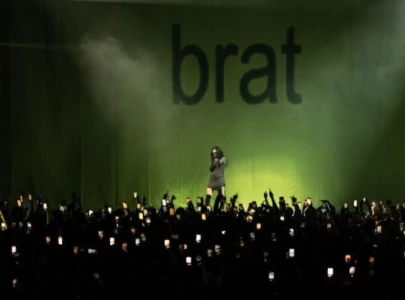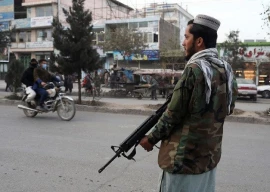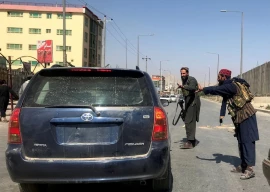
With political tensions ravaging war-torn neighbouring Afghanistan, waves of desolate refugees have thronged towards Pakistani borders. With the limited infrastructure to deal with the refugees, the authorities often struggle to accommodate these bewildered newcomers. The responsibility of sharing the burden falls on the shoulders of civilians concerned such as myself. In an effort to help Afghan refugees integrate into the fabric of Pakistani society, I initiated my two-fold initiative Tokri Bazaar.
With a language barrier, no form of identification and a lack of cultural awareness, the displaced Afghan refugees struggled to find employment opportunities. Therefore, to earn a livelihood, the refugees would collect trash from the affluent neighbourhoods of Defence Housing Authority, which they would sell at day's end to earn a mere Rs400 per day. Tokri Bazaar aims to give them the means to earn a sustainable and respectable livelihood, acting as porters in the local markets of Karachi, helping people carry their ‘sauda’ (groceries).
Read more: Canada to resettle female Afghan judges, families living in limbo
The venture started with me and four displaced refugees learning the art of folding straw fibres in a criss-cross style, from a vendor in Saddar market, as we set out to manually weave baskets. Baskets in hand, the refugees made their way to Budh Bazaar Ground, Sunday and Wednesday Bazaar and Empress Market to offer their services as porters.
Re-using tokris to transport sauda, the refugees are able to earn adequate income, equating to approximately Rs50 for every 30 minutes of service, plus any tips based on the generosity of their customers. The success of the operation led us to repeat a cycle: manually weaving tokris at night, enabling them to make their way to the local markets the next day.
However, I realised that in order to make the model more sustainable, I had to move away from manually weaving baskets. After a month of research and a few phone calls, I was able to organise a weekly supply chain of palm leaf fibres from Khairpur which lowered the cost of production. I then reached out to a number of top textile companies via email, social media and through Karachi Grammar School’s helper society to gain access to weaving machines.
Soon after, one of Pakistan’s largest textile companies – Gul Ahmed Textiles – agreed to support Tokri Bazaar as part of their contribution to sustainability projects. This gave us access to supervised use of their weaving machines weekly, which in turn increased the output of tokris by approximately 8 folds, from 30 baskets to 240 baskets per week.
The lower costs and increased output allowed me to expand Tokri Bazaar’s operations. Today, Tokri Bazaar represents a practical working model, giving 61 refugees a weekly supply of 4 reusable tokris to be used in their day jobs as porters, alongside selling surplus tokris to reinvest profits into the organisation to make it self-sufficient. In addition to helping 61 refugees earn a livelihood, Tokri Bazaar also helps encourage sustainable shopping in the local markets of Karachi – replacing plastic bags with reusable tokris.
Also read: Desperate Afghans queue for free bread as poverty crisis deepens
The vitality of small-scale organisations supporting minority communities is the need of the hour, particularly in Pakistan. In the midst of a pandemic, a time of economic turmoil and mass uncertainty, marginalised communities face greater adversity than ever before. With so much divisiveness and widespread unemployment, it is imperative to help create an inclusive environment for the overlooked voices of our society. By initiating our own small-scale efforts we can singularly impact the lives of masses, at the same time, celebrating diversity and encouraging the idea that a multicultural society can progress in harmony.
Communicating in sign language, smiles and nods; for I did not speak Dari and they did not understand Urdu – we struggled – yet as our camaraderie grew, so did my understanding of their plight. Seeing relief replacing the frown lines etched on their foreheads, I saw the impact a small-scale non-profit venture had on this marginalised community. To me, the community is akin to straw woven into a basket; each individual strengthening the whole as he or she weaves themselves towards a singular purpose.
The writer is a second-year A-Levels student at Karachi Grammar School with a keen interest in humanities and social sciences. His aim is to raise awareness among young Pakistani readers of the growing need to support our marginalised communities and embrace the diversity within Pakistan.




1719660634-1/BeFunky-collage-nicole-(1)1719660634-1-165x106.webp)










COMMENTS
Comments are moderated and generally will be posted if they are on-topic and not abusive.
For more information, please see our Comments FAQ